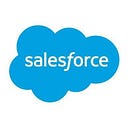Hiring for a cultural fit
There can be few scarier words than “I would like you to run our cultural interview”. Even the most technically-adept developer will shudder at such talk. Perhaps it is the vagueness of the term “cultural interview” that sends us OCD-ridden engineers a little crazy.
So how can we assess a candidate’s culture? Get an idea of their core principles? Judge if they are aligned to our company values? Oh yes — and we only get an hour.
Interviewing is an important skill to learn but it should not be something to fear. In simple terms, an interviewer’s role is to provide a platform and encourage the candidate to participate. Given the right guidance, an hour is plenty of time to assess cultural suitability.
Conversation not interrogation
From experience cultural interviews work best when it becomes a genuine conversation. It definitely helps to use questions that spark debate. Consider asking questions that do not have a clear right or wrong answer. Divide opinion and ask the candidate to take a stance.
Examples might include how they would implement a breaking change within a REST API, or how they like to structure their unit tests. Be warned that open-ended questions can confuse a candidate so make it clear there is no right answer. What you can look for are opinions and the ability to effectively communicate their opinion succinctly.
Set the tone
A worthwhile opening question is the ‘ideal world’ scenario; how would the candidate set up a team to work on an application in an ideal world?
What team size do they prefer and what roles does it consist of? Are they interested in traditional Scrum or would they jump straight into a Lean approach? What environments do they talk about (local > dev > QA > staging > prod)? When do they consider the deployment pipeline (earlier the better)? What about product input to discuss KPIs? Also, post deploy how about monitoring, logging and alerts?
That one opening question can often spawn conversation with further queries. Do not be concerned if the conversation spans 15 to 20 minutes. It gives the candidate a chance to warm up and sets expectations. We are not monsters throwing questions at them until they cry. We want a conversation.
Build your interview with structure
By focusing on specific areas, we can give structure to a cultural interview. This will provide us with a much more colourful judgment of the candidate.
Passion: The definitive part of an individual’s make up. Do not expect passion to flow from the first minute, but the candidate should light up when discussing concepts they are passionate about. It could be a language (C#/NodeJS), an approach (Agile/DevOps), or specific technology (MongoDB/Docker).
If the candidate shows no obvious passion throughout the hour, then you should be a little concerned. Look for individuals that will flourish in your team. A direct question can be the spark a nervous candidate needs, so don’t be afraid to ask directly, “What are you passionate about?”
Ownership: Does this candidate give the impression that they will pick up and own a story from concept through to production? Are they more interested in being told what to do? You might have different expectations from different engineering levels but across the board you are looking for candidates who are pro-active and engaged. Can the individual be trusted to take ownership and deliver?
Craftsmanship: We need assurances from the candidate that they operate at the very top level. Answers should be sound and not overly complicated. Do they consider testing to be an integral part of development? Recognition of SOLID principles is not always a requirement, but to take an example they should be able to discuss the benefits of the single responsibility principle. Do you leave with the impression the candidate takes pride in their work and will produce that extra level of detail?
Teamwork: A team is stronger than any individual contribution. Does the candidate feel the same way? Are they collaborative, open to pairing and keen to explore problems as part of a group? How would they deal with conflicts inside a team? Engineering is a strongly opinionated environment. Are they open to compromise whilst being able to stand up to their core principles? Ideally the interview should end with you thinking, “Yes, I want them on my team.”
Go with the flow
These suggestions are designed to aid conversation. It is an art to direct the interview but also let it flow organically. It can be easy to dry up during an interview so set questions are useful — but do not worry if you run out of time before asking them.
The term “cultural interview” does not mean that technical questions are banned. Far from it. Instead try to include questions of a technical nature that prompt conversation — when was the last time they had to compromise on a technical decision? What were the circumstances? What was the final outcome? Don’t forget to co-ordinate with the other interviewers to ensure both technical and cultural questions are covered and you are not asking the same questions.
Finally, allow time for questions at the end. This is easily overlooked. All too often interviews are considered to support or deny a candidate when in reality we should be humble enough to understand top talent is being pursued and has options.
The interview should be bi-directional, providing them with a chance to gauge the company you are inviting them to join. Although questions should not be expected, end 5–10 minutes early to give them time should they need it. This will give you both the opportunity to see if it’s a sound cultural fit.
Further reading
• 12 challenging steps to being a better interviewer (Cate Huston)
• Why we don’t ask technical questions for technical interviews at Buffer (Sunil Sadasivan)
• Cultural ramifications of technical interviews (Heidy Khlaaf)

